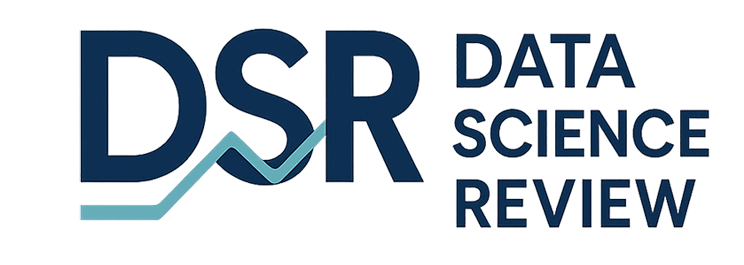You'll be spending a lot of time perusing job boards and listings for data science. Many will require a master's degree in the field or something related. Does this mean it's game over if you don't have a master's degree in data science?
As with anything, the answer isn't straightforward. It certainly helps to have an advanced degree in data science. But, if you don't have one you still have plenty of options. You may have to work a bit harder, but if you want it bad enough, it'll happen for you.

Consider the Jobs Being Offered
If a company is looking for a senior data scientist, then the requirement for an advanced degree may be enforced. Entry-level positions will have more flexibility, all equal. Therefore, you may need to level down a bit in your job search. Of course, that means less pay and more of the mundane work that senior personnel won't want to do. However, you will get a foot in the door and experience.
Many companies offer some tuition assistance. You could take a lower position and get your advanced degree while working. You will be in a better bargaining position when that happens. Even without tuition assistance, the experience is golden, though.
Shortage of Workers

Companies are ramping up their data science efforts, and they are having a difficult time finding qualified candidates. Part of this difficulty stems from the newness of the field. While data science has been "a thing" for a while, the discipline remained part of the computer science landscape. Programmers and other tech people have been working with data since we have been capturing data.
Within the last eight years or so, there have been developments that are defining new roles specific to data. This is largely due to the availability of data and tools to work on the data. The takeaway is the field is evolving and companies are trying to determine exactly what they need.
I believe the roles will solidify as is happening now. But, that still leaves companies with trying to staff quickly. They want to gain a competitive edge by analyzing data for patterns. The patterns that emerge will give companies an edge.

Of course, as more companies jump on the bandwagon, that edge will narrow. For instance, in the world of baseball, the Oakland A's gained an advantage by using Sabermetrics to find undervalued players in 2002. This is after they lost three key players. With the analysis, the team made it to the playoffs. Most baseball teams today hire sabermatricians. But, the question becomes are any of the teams gaining an edge or is sabermetrics the new status quo?
You may read about a shortage of data science professionals and yet still have difficulty finding a job. One reason is the transient nature of the field to date. Since companies don't fully understand what it takes to gain insight into their data, they can't formulate a job requirement effectively. This is changing as the field becomes stable. But, we're not there yet.
Comparing Apples to Apples
When I was working as a lead computer programmer (still do, sort of), I would lean towards choosing someone with a bachelor's degree in computer science over someone who had a master's degree in an unrelated field. The person with the computer science degree would likely have the temperament for working in this field. This isn't to say someone outside of the field couldn't adjust. But, the fact they didn't study it to begin with would indicate to me this wasn't on their list of priorities.

I realize this is a simplistic view. I would obviously consider all aspects of both candidates. But, the computer science candidate sets the tone from the start.
It will likely be the same for hiring managers today. If someone has an inclination towards data science but does not hold an advanced degree, the manager will consider that. Smart managers will look past what's on paper and will take into consideration the person's interest and history.
On the other hand, if you have an advanced degree in a related field, such as data science, and the requirement is for an advanced degree, that will help you quite a bit.
Alternative Steps
The biggest challenges with obtaining an advanced degree are time and money. A master's degree takes approximately two years and that's as a full time student. The costs vary widely depending on the schools and the locations. It's reasonable to expect at least $20,000 or more and it can take anywhere from one to two years. Therefore, if you are looking to get a job in data science, you'll have to either suck it up and get that advanced degree, or you'll need to find alternatives.

The following are some alternatives to consider. The more of these options you try, the better your chances of getting a job in data science without a master's degree.
Create a Blog
Start a blog in something related to data science. Build a following to this blog, and this becomes something you can put on your resume. It counts more than you know. Make sure you show on the blog that you are capable of performing data science tasks. Solve problems and get others involved. If nothing else, a popular blog can be monetized. You also increase your authority which pulls significant weight in an interview.

Be Active in Forums and Blogs
Find popular blogs and forums and join them. Then, stay active within those communities. Get yourself known. In the beginning, ask a lot of questions. Then, as you learn, become the authority. Eventually, you can set up solutions on your blog that you can point people from the forums to review.

Join Kaggle
If you are already involved in the data science world, you probably know about Kaggle. If not, it's time to learn about it. Kaggle.com is a website dedicated to help companies looking for data analysis and match them with data science professionals. The matching comes in the form of contests. Companies determine what they want from their data and a dollar amount for the winners.
More than contests, though, the community within Kaggle is helpful. You can learn how people arrived at their solutions. Of course, you are welcome to submit to the contests yourself. I have written a post previously about this website:
Cochrane, James. “Don't Fear The Kaggle!” Data Science Review, 3 Dec. 2018, datasciencereview.com/dont-fear-the-kaggle.
Create an Internship
This is an out-of-the-box thinking item. Offer a manager of a company your time (unpaid) for a few months. Doing this accomplishes two goals: you get a foot in the door and you get some training on the job. It also sets up the possibility of being hired after the internship.
Internships don't have to be formal arrangements. If you like, call it something else like volunteerism. Whatever! The point is you are being proactive and you are putting yourself into your desired path.
Target Smaller Companies
Large companies will no doubt dominate the listings on the job boards. This is true of any field. However, there are plenty of small to mid-sized companies that also need data science work. Look for job listings in the not-so-obvious places. These will be in local newspapers and perhaps even on Craigslist. Networking is also a key factor when trying to find work in smaller companies. If you know someone who works in a small company, ask them about their data science initiatives. If they ask what that is, you have a potential candidate.
As you gain some experience in data science, you can start to pitch smaller companies on data science services. Many small companies don't know they even need this type of service. When you show them the benefits, they will likely be receptive.
Smaller companies don't have large budgets, so you'll have to factor that in when coming up with a salary. If the key is to get your foot in the door, you may want to be flexible with this. Having a testimonial from a small company will more than make up for the salary deficit.
Publish
There are so many platforms to publish on the internet these days. You don't even need to make money with the work that you publish. You can use it to put on your resume. Imagine going into an interview and stating that you published a book on Amazon related to the topic of data science. That will go far with hiring managers. It's something that many candidates don't and even won't do. This is one item that will help you stand out. This also helps when you want to consult as you can use it as the basis for establishing authority. People are impressed with authors.
Reach out to trade organizations, too. When you publish data science-related materials, you become a published writer. You now have clips that you can use to write more. If, for some reason you can't find a traditional job, you now have a path you can pursue.
Scan Job Requirements Frequently
The field of data science changes so rapidly, that it's hard to keep up with learning. One great way to keep on top of the industry is to monitor the jobs that are being offered. Look at the job specs and see what skills they are looking for.
A word of caution is warranted - while you want to keep on top of the developments in the data science field, you don't want to jump around with your learning. Try to focus on the most popular skills and also focus on what you would be interested in learning. You may love artificial intelligence but aren't as thrilled with some aspects of machine learning. It's important to learn, but you need to set limits to prevent yourself from getting overwhelmed. The overwhelm factor is huge in data science.
Network with Data Science Recruiters
Even if you aren't currently searching for jobs, reach out to data science recruiters and let them know that you'll be available sometime in the future. Keep an open dialog but respect their time. If you aren't ready to take a job, find others who may be and refer them to the recruiter. They will likely give you a referral fee for this. But, even if they don't, you have an insider in the industry. Make sure the recruiter is qualified for the data science field, however. Not every recruiter will have the qualifications. It's a specialized discipline.

Attend Data Science Events
You meet a lot of people at events. Often, influencers appear at these events. Try to get yourself in front of these influencers. If possible, offer to help them if they are presenting at the event. You could help them set up or offer to drive them around town. Do this for free. These influencers will take note of your efforts, and it is something that most other attendees won't do.
Follow Influencers Online
When you learn who the influencers are in the data science field, make sure you follow them. Get on their social media channels and their email lists. Start reaching out to them with questions. They may not have time to answer every inquiry, but you'd be surprised. Try to find ways to give more than you ask for.

Play Up Your Strengths
A good portion of the job for data science is knowing about the business. When you gain insight from data, if you lack the business knowledge, you'll miss what you need to capture. You'll discover the obvious aspects of the business but you'll completely miss the subtle aspects that a seasoned business pro would know.
The point here is play up on your business knowledge. If you worked several years in the healthcare industry, don't apply for a data science job in the retail space. As you gain experience, you can be more choosy in the fields you work in. But, in the beginning, use your subject matter expertise as an advantage. Stick with your field whenever possible.

Never Stop Learning
Gone are the days where companies will give you full-scale on-the-job training. When I first started working in the computer science world, companies were more flexible. If you didn't know a computer language, companies would train you. The introduction of the internet, along with outsourcing, removed this from the arena. You gotta know your stuff!
Even if you are just starting out, companies will expect you to have a framework of knowledge. If you have been considering data science for several weeks now and you have yet to learn Python or R, shame on you. What are you waiting for? There are so many resources that can teach you these skills. Training is accessible. It's also cheap or free.
Get Into Data Science for the Love of the Field
The only reason I can think why you would be far along in your consideration of data science, but haven't developed your framework, is you heard the money was good. If this is your only reason to get into data science, get the hell out now. You won't do well in this field. You have to love it to excel.
The money chasers will burn out quickly and will be a burden to their colleagues. I suppose there may be one or two people who may eventually catch on, but history has shown this not to be the case. Love what you do and the money will follow.
One Advantage of Not Getting a Master's Degree
You will have the edge over people who just started with their master's degree. When you follow the tips in this article, you will be putting yourself out there while the master's degree candidates will be spending most of their time in class and homework. Since there is a shortage of workers, it is reasonable to assume that you can find work without an advanced degree, assuming you are proactive. Keep after it and it will likely happen for you soon!
Build Your Data Science Foundation Right Now!
If you want a solid foundation into the field of data science, you can become a superstar in the data science field by clicking on the button --->

